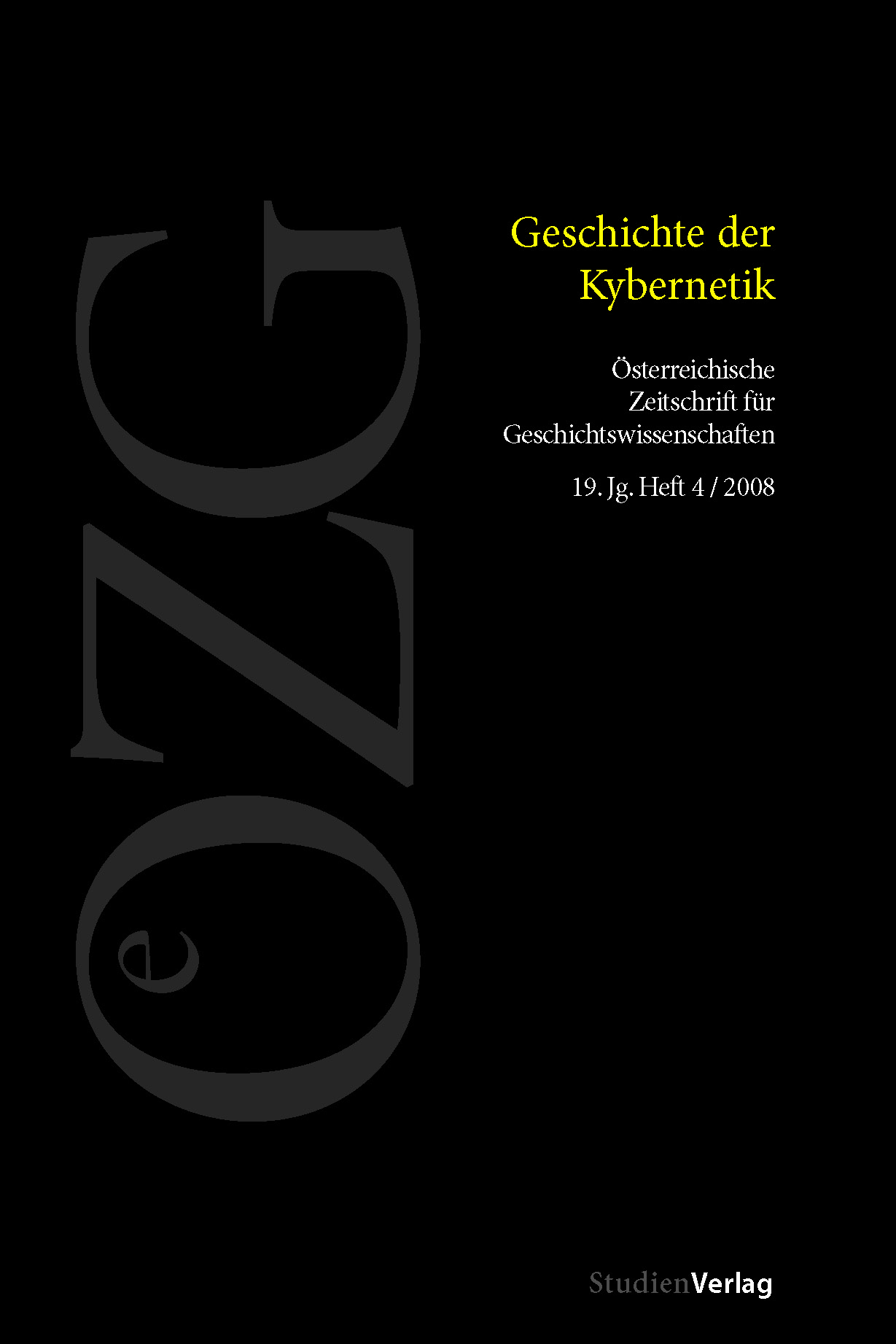Computer als Modelle des Geistes
Über Simulation und das Gehirn als Modell des Designs von Computern
DOI:
https://doi.org/10.25365/oezg-2008-19-4-4Abstract
The article considers the complexities of thinking about the computer as a model of the mind. It examines the computer as being a model of the brain in several very different senses of ‚model‘. On the one hand the basic architecture of the first modern stored-program computers was „modeled on“ the brain by John von Neumann. Von Neumann also sought to build a mathematical model of the biological brain as a complex system. A similar but different approach to modeling the brain was taken by Alan Turing, who on the one hand believed that the mind simply was a universal computer, and who sought to show how brain-like networks could self-organize into Universal Turing Machines. And on the other hand, Turing saw the computer as the universal machine that could simulate any other machine, and thus any par- ticular human skill and thereby could simulate human intelligence. This leads to a discussion of the nature of ‚simulation‘ and its relation to models and modeling. The article applies this analysis to a written correspondence between Ashby and Turing in which Turing urges Ashby to simulate his cybernetic Homeostat device on the ACE computer, rather than build a special machine.


